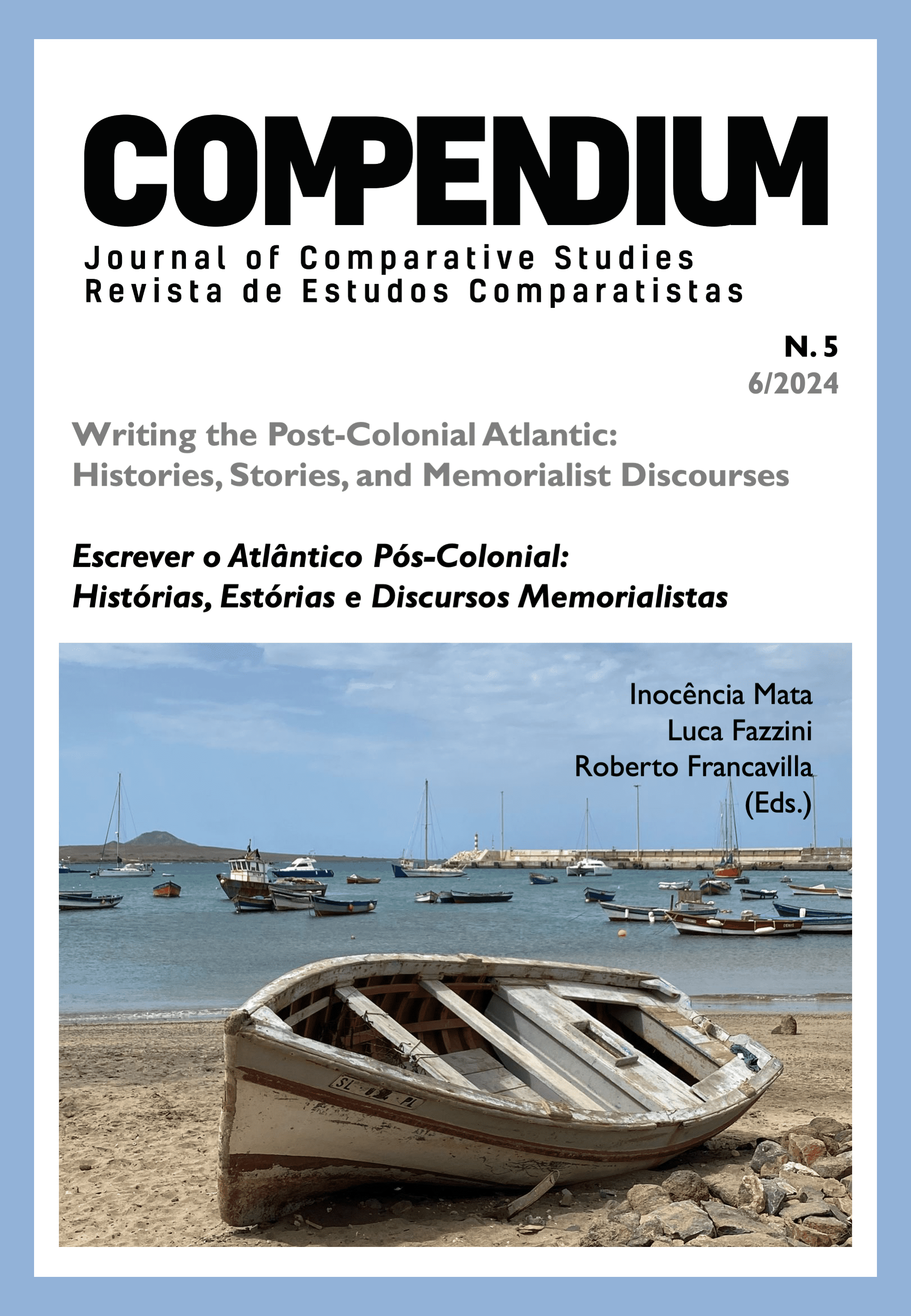The Caribbean
Horizons of Possibilities for a Future Without Guarantees
DOI:
https://doi.org/10.51427/com.jcs.2024.05.0002Keywords:
imperialism, neocolonialism, tricontinentalism, Westphalianism, colonialityAbstract
The paper examines horizons of possibilities for charting a course for the Caribbean to a sustainable future through a focus on the multiplicity of connections in which people and institutions of the region are involved. These possibilities, it is argued, are forged out of global processes that began with colonialism. They are predicated on a reformulation of regional relations away from forms of Westphalian sovereignty and Euro-American global centers of power. They are present in regional institutional arrangements and organizations that transcend boundaries shaped by histories of colonialism. They derive from the region's histories of anti-colonial resistance that have imbued popular conscience. And they are contained in the global scale of "tricontinental" relations through which are circulated different forms of rejection of Euro-American domination. The paper examines their potential for transforming the Caribbean in ways that would maximize ecological sustainability, conditions of human sustenance, and regional autonomy.
Downloads
References
Amin, Samir. 1974. Accumulation on a World Scale: A Critique of the Theory of Underdevel-opment. New York: Monthly Review Press.
British Broadcasting Service. 2008. “BBC Caribbean News in Brief”. BBC Caribbean Ar-chive. November 21, 2008.
http://www.bbc.co.uk/caribbean/news/story/2008/11/081121_nibnov21pm.shtml.
Caribbean Community. 2017. Caribbean Community Caricom.org. Accessed March 3, 2017. http://caricom.org/cariforum-the-context.
Caribbean News Agency. 2008. “Trinidad PM meets OECS Leaders to Discuss Unity Initi-ative”. Caribbean News Agency, October 24.
Castaneda, S. 2009. “China’s policy paper on Latin America and the Caribbean”. Council on Hemispheric Affairs, July 29, 2009.
Central Intelligence Agency. 2021. “Mexico, North America”. The World Factbook, March 20, 2021. https://www.cia.gov/the-world-factbook/countries/mexico/#introduction.
Choonara, Joseph, and David Harvey. 2009. Interview: David Harvey – Exploring the logic of Capital, April 2009. http://socialistreview.org.uk/335/interview-david-harvey-exploring-logic-capital.
Clendenning, A. 2003. “‘Axis of Good’ for Brazil, Cuba, and Venezuela”. The Associated Press, January 3, 2003. http://www.commondreams.org/headlines03/0103-01.html.
Economic Comission for Latin America and the Caribbean. 2020. “Latin America and the Caribbean will have Positive Growth in 2021, but it will not be enough to Recover Pre-Pandemic Levels of Economic Activity”. Press Releases: Economic Commission for Latin America and the Caribbean, December 16, 2020.
Fiske, John. 1996. “Opening the Hallway: some remarks on the fertility of Stuart Hall’s contribution to critical theory”. In Stuart Hall: Critical Dialogues in Cultural Studies, edited by Kuan-Hsing Chen and David Morley, 212-220. London: Routledge.
Food and Agriculture Organization of the United Nations. 2009. “FAO and Traditional Knowledge: The Linkages with Sustainability, Food Security and Climate Change Impacts”. Food and Agricultural Organization. http://www.fao.org/3/i0841e/i0841e.pdf.
Gibbs, A. K., and C. N. Barron. 1993. The Geology of the Guiana Shield. Oxford: Oxford University Press.
Glasgow, Rosanne. 2011. “Brazil and Caribbean Relations–what of integration”. Newsday, June 2011.
Glissant, Édouard. 1997. Poetics of Relation. Translated by Betsy Wing. Michigan: Univer-sity of Michigan Press.
Goldstone, Jack. 2010. “The New Population Bomb: The Four Megatrends that will change the World”. Foreign Affairs 89 (1): 31-43.
Government of Guyana. 2014. “India-Guyana Relations”. Ministry of Foreign Affairs, Gov-ernment of Guyana. March 24, 2014.
http://mea.gov.in/Portal/ForeignRelation/Guyana_January_2014.pdf.
Harvey, David. 2006. The Limits to Capital. London and New York: Verso.
Hintzen, Percy C. 1995. “Structural Adjustment and the new International Middle Class”. Transition 24: 52-74.
Horowitz, Z. 2014. Bolivarian alliance for our peoples of the America – ALBA, May 29, 2014.
Jessop, D. 2012. “China’s deepening interest in the Caribbean”. Jamaica Gleaner, August 5, 2012.
Kaiture News. 2013. “Guyana Brazil in critical meeting”. Kaiture News, October 1, 2013.
Lauren, Paul G. 1988. Power and Prejudice: The Politics and Diplomacy of Racial Discrimi-nation. Boulder: Westview Press.
Lawrence Grossberg. 1996. “On Postmodernism and Articulation: An Interview with Stu-art Hall”. In Stuart Hall: Critical Dialogues in Cultural Studies, edited by David Mor-ley and Kuan-Hsing Chen. London: Routledge.
Li, Xue, and Xu Yanzhou. 2015. “Why China shouldn’t get too invested in Latin America”. The Diplomat, March 31, 2015.
http://thediplomat.com/2015/03/why-china-shouldnt-get-too-invested-in-latin-america/.
Mallet-Outtrim, B. 2013. “Venezuela Analysis”. Petrocaribe eets in Venezuela, links with ALBA. April 6, 2013.
Mi, L. 2013. “Xi trip ushers in new chapter for China-Latin American relations”. Xinhua News. June 5, 2013.
http://news.xinhuanet.com/english/china/2013-06/05/c_132432058.html.
Organization of Eastern Caribbean States. 2021. “Who we Are”. Organization of Eastern Caribbean States, March 29, 2021. https://www.oecs.org/en/who-we-are/history.
Polanyi, Karl. 1944. Origins of Our Time: The Great Transformation. New York: Farrar & Reinhart.
Puri, Shalini. 2004. The Caribbean Postcolonial: Social Equality, Post-Nationalism, and Cultural Hybridity. New York: Palgrave Macmillan.
Quijano, Anibal. 2000. “Coloniality of Power and Eurocentrism in Latin America”. Interna-tional Sociology 15 (2): 217-34.
Robinson, William I. 2014. Global Capitalism and the Crisis of Humanity. Cambridge and New York: Cambridge University Press.
Rostow, Walt W. 1960. The Stages of Economic Growth: A Non-Communist Manifesto. Cambridge: Cambridge University Press.
Shiva, Vandana. 2005. Earth Democracy: Justice, Sustainability, and Peace. Cambridge: Cambridge University Press.
Stavans, Ilan. 1995. The Hispanic Condition. New York: Harper Perennial.
The High Commission of the Republic of Trinidad and Tobago. 2014. “Delhi, India Re-lease”. The High Commission of the Republic of Trinidad and Tobago. March 24. Ac-cessed March 24, 2014.
The World Bank. 2019. “Population ages 65 and above (% of total population) Latin Amer-ica and the Caribbean”. The World Bank.
The World Bank. 2016. GDP per capita growth. Latin America and the Caribbean.
http://data.worldbank.org/region/latin-america-and-caribbean.
https://data.worldbank.org/indicator/SP.POP.65UP.TO.ZS?locations=ZJ.
Thompson, Akola. 2016. “The Guiana Shield, the ‘greenhouse of the world’”. Mongabay, October 19, 2016. https://news.mongabay.com/2016/10/experts-warn-more-monitoring-needed-for-the-guiana-shield-the-greenhouse-of-the-world/.
Trouillot, Michel Rolph. 2001. “The Anthropology of the State in the Age of Globalization”. Current Anthropology 42 (1).
United Nations Department of Economic and Social Affairs, Population Division (2019). “Population Division. World Population Prospects”. United Nations, Population Divi-sion, August 28. https://population.un.org/wpp/.
Wallerstein, Immanuel. 2004. World-Systems Analysis: An Introduction. Durham and Lon-don: Duke University Press.
Xinhua News. 2008. “China's policy paper in Latin America and the Caribbean”. China-view. March 18, 2008.
http://news.xinhuanet.com/english/2008-11/05/content_1038117_2.htm.
Xinhua News. 2011. “Xinhua online”. L. American leaders sign CELAC into effect as new bloc. http://news.xinhuanet.com/english2010/world/2011-12/04/c_131286548.htm.
Young, Robert C. J. 2001. Postcolonialism: An Historical Introduction. London: Blackwell.
Downloads
Published
How to Cite
Issue
Section
License
Copyright (c) 2024 Percy C. Hintzen

This work is licensed under a Creative Commons Attribution 4.0 International License.
Compendium embraces online publishing and open access to all issues. Authors retain copyright and grant the journal right of first publication with the work simultaneously licensed under a Creative Commons Attribution 4.0 International (CC BY 4.0), that allows others to share the work with an acknowledgement of the work's authorship and initial publication in this journal.











